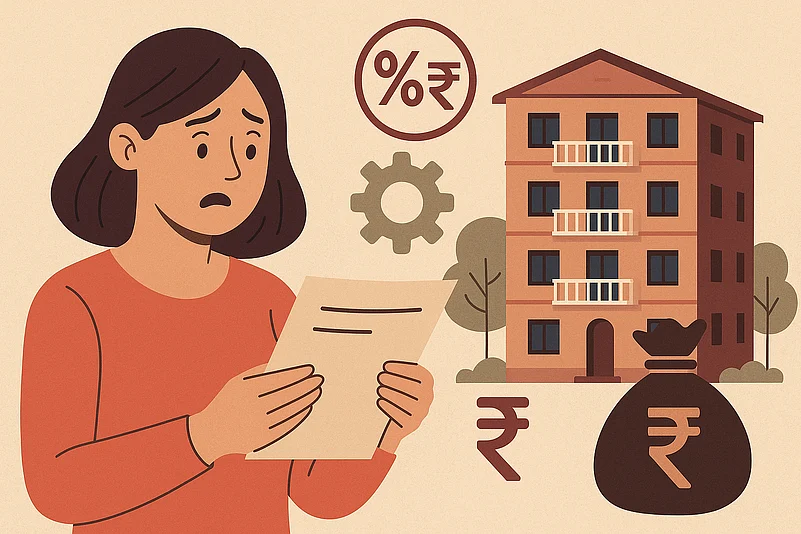
Summary of this article
GST applies if RWA turnover exceeds Rs 20 lakh annually.
Monthly maintenance above Rs 7,500 triggers GST liability per flat.
Residents can request GSTIN and transparency on tax collection.
Compliance errors include wrong calculation, non-registration, and late filings.
Goods and services tax (GST) comes into play when two conditions are met: first, the monthly maintenance charges paid by a resident exceed Rs 7,500, and second, the housing society’s annual turnover crosses Rs 20 lakh. “For calculation of taxable turnover of Rs 20 lakh, not just the monthly maintaining charges, but other one-time collections or special contributions for construction work, etc., are also considered,” says SR Patnaik, partner (head - taxation), Cyril Amarchand Mangaldas.
Residents Can Demand Clarity On GST Collection
Interestingly, even if the RWA’s turnover crosses Rs 20 lakh just once in a financial year, it becomes liable to obtain a GST registration and has to charge and pay GST in the following years as well (provided the monthly maintenance per flat continues to be above Rs 7,500.
In case an RWA continues to collect GST, the first step is to seek transparency or educate them on the provisions. Residents can request the society’s GST Identification Number (GSTIN).
“This will add clarity to the basis of its GST registration (if turnover exceeds Rs 20 lakh a year), and the specific notification or CBIC circular under which GST is being levied. "As per CBIC Circular No. 109/28/2019-GST and official FAQs, it has been made clear that charges up to Rs 7,500 per month per member are exempt. If GST has been wrongly applied, residents can insist on corrected billing or a credit note.
Common Compliance Mistakes Made By Housing Societies/RWAs
Some of the common compliance mistakes made by housing societies/RWAs are (a) non-registration under GST even after crossing the turnover threshold, (b) erroneous interpretation of applicable provisions (CBIC has clarified that the entire amount becomes taxable where the charges exceed Rs 7500/- per month per member), (c) non-inclusion of the non-membership income in the taxable turnover, (d) default in filing GST returns and/or payment of GST to the government, (e) non-maintenance of records, and (f) non-reversal of ITC in case of exempt supplies.
So, a common compliance slip-up by RWAs lies in calculating the taxable value of supply. Once the monthly maintenance exceeds Rs 7,500 per member, GST applies to the entire amount, not just the portion above Rs 7,500. “However, statutory charges like property tax, water, or electricity bills are excluded from this limit,” says Patnaik.
“Such compliance-related mistakes can be avoided by regularly monitoring the turnover, reviewing tax positions, timely filing of returns, and seeking expert advice on complex compliance-related and interpretational issues,” says Tushar Joshi, counsel, DMD Advocates.
“Only smaller housing societies wherein the monthly maintenance is less than Rs 7,500 get relief from the GST payment. Unfortunately, even senior citizens do not get a pass under the current GST regime,” says Patnaik.










